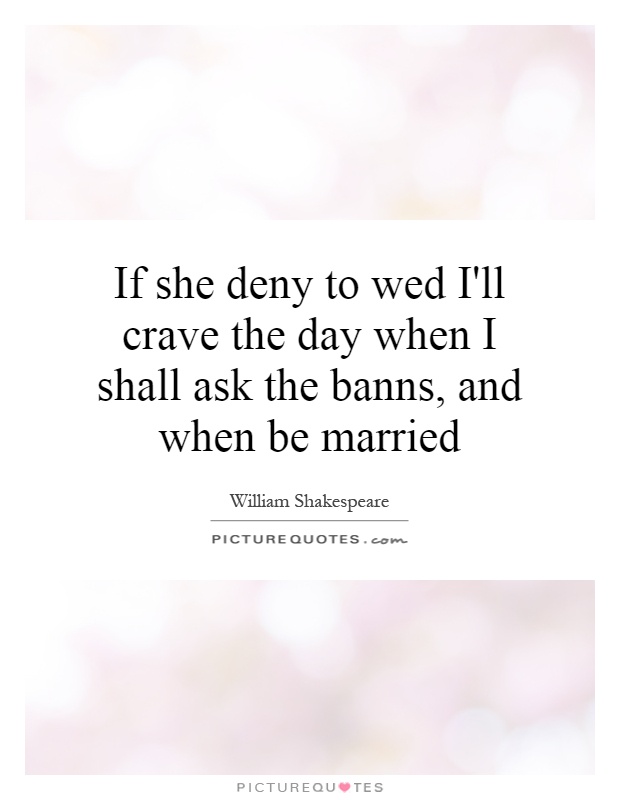If she deny to wed I'll crave the day when I shall ask the banns, and when be married

If she deny to wed I'll crave the day when I shall ask the banns, and when be married
The line "If she deny to wed I'll crave the day when I shall ask the banns, and when be married" is spoken by the character Claudio in William Shakespeare's play "Much Ado About Nothing." In this line, Claudio expresses his determination to marry Hero, despite any obstacles that may come their way.Claudio's declaration of his intention to marry Hero, even if she initially refuses, reveals his deep love and commitment to her. He is willing to go through the process of asking the banns, which are public announcements of an impending marriage, in order to make their union official. This shows that Claudio is not just infatuated with Hero, but truly desires to make her his wife.
The fact that Claudio is willing to go through the formalities of marriage, even if Hero initially rejects him, demonstrates his respect for tradition and societal norms. In Shakespeare's time, marriage was a highly regulated institution, and the banns were an important part of the process. By stating that he will ask the banns and be married, Claudio is showing that he is willing to follow the rules and conventions of his society in order to be with the woman he loves.
Furthermore, Claudio's determination to marry Hero despite any obstacles reflects his unwavering faith in their love. He is confident that, no matter what challenges they may face, their love will prevail and they will ultimately be together. This unwavering belief in their relationship highlights Claudio's deep emotional connection to Hero and his commitment to making their love last.
Overall, Claudio's declaration in this line encapsulates the themes of love, commitment, and tradition that are central to Shakespeare's work. It showcases the power of love to overcome obstacles and the importance of following societal norms in matters of the heart.












 Friendship Quotes
Friendship Quotes Love Quotes
Love Quotes Life Quotes
Life Quotes Funny Quotes
Funny Quotes Motivational Quotes
Motivational Quotes Inspirational Quotes
Inspirational Quotes